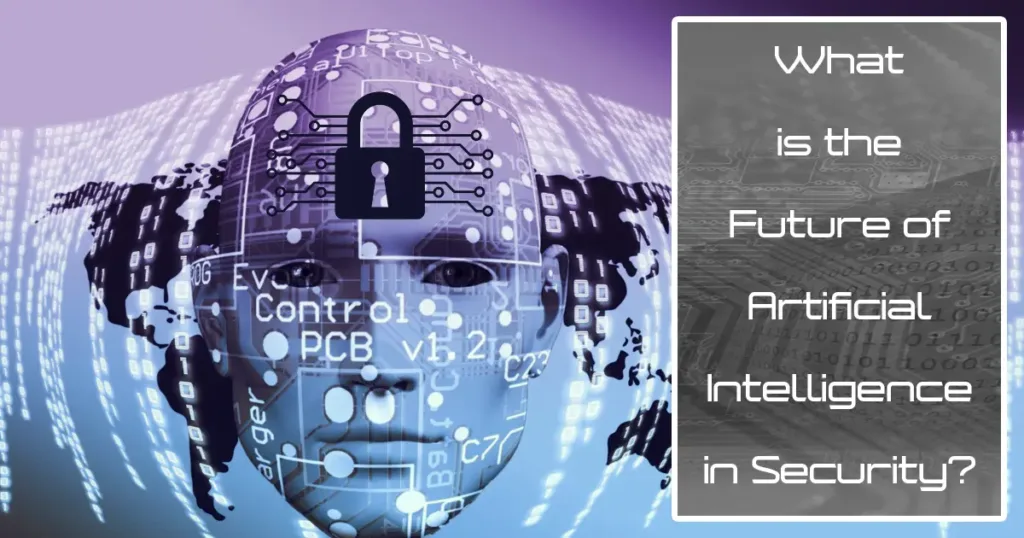The realm of security is on the brink of a revolution, courtesy of Artificial Intelligence (AI). The potential of AI in Security Innovation is vast, promising unprecedented advancements in how we protect our digital and physical worlds. This exploration delves into the transformative benefits and the ethical dilemmas posed by AI’s integration into security measures, offering insights into how we can harness this technology responsibly.
The Transformative Benefits of AI in Security
AI’s role in enhancing security measures is multifaceted, with its ability to preemptively identify threats being a game-changer for cybersecurity. Utilizing machine learning algorithms, AI systems can sift through vast datasets to pinpoint anomalous patterns indicative of cyber threats, ensuring rapid detection and response with minimal human intervention.
- Evolving Threat Detection: The adaptive nature of machine learning algorithms means that AI systems continually refine their threat detection capabilities, staying one step ahead of cybercriminals.
- Real-time Response: AI can automate responses to security incidents, drastically reducing the time from detection to mitigation and minimizing potential damage.
Navigating the Ethical Terrain of AI in Security
While the advantages of AI in Security Innovation are clear, it is imperative to address the ethical considerations that accompany its deployment. Issues of data privacy, decision-making biases, and the security of AI systems themselves are at the forefront of this ethical debate.
- Data Privacy and Protection: Ensuring the security of the datasets used to train AI systems is crucial to protect personal and financial information from unauthorized access.
- Bias Mitigation: Implementing oversight mechanisms to audit AI decisions for fairness and eliminate biases is essential for ethical AI applications in security.
- Counteracting Manipulation: Strengthening AI systems against potential exploitation by cybercriminals is critical to maintain the integrity of security measures.
AI in Security Innovation: A Strategic Approach
Adopting AI in security necessitates a strategic approach to maximize benefits while addressing potential risks:
- Privacy-First Data Handling: Employ encryption and stringent data protection measures to safeguard sensitive information used in training AI models.
- Continuous Oversight: Establish protocols for regular audits of AI-driven decisions, ensuring accuracy, fairness, and transparency over time.
- Advanced Authentication Measures: Integrate multi-factor authentication and biometrics to bolster defenses against unauthorized AI system manipulation.
Will AI Reshape Security?
AI’s integration into security strategies heralds a new era of intelligent surveillance, threat detection, and incident response. Unlike traditional security systems that rely on predefined rules and manual oversight, AI-powered solutions can learn and adapt, offering dynamic protection mechanisms that evolve in tandem with emerging threats.
- Predictive Threat Analysis: AI algorithms can sift through vast datasets to identify patterns and anomalies that human analysts might overlook. This capability enables predictive threat analysis, allowing organizations to thwart potential attacks before they materialize.
- Automated Incident Response: AI can automate the response to security incidents, significantly reducing the time from detection to mitigation. This rapid response capability is crucial in minimizing the impact of breaches and ensuring business continuity.
- Enhanced Decision Making: By analyzing data from various sources in real-time, AI aids in making informed security decisions, streamlining operations, and allocating resources more effectively.
Ethical Considerations and Safeguards
The deployment of AI in security also brings to the fore ethical considerations and the need for robust safeguards:
- Bias and Fairness: Ensuring AI systems are free from biases and make fair decisions is crucial. Regular audits and transparency in AI algorithms can help mitigate bias, ensuring equitable security measures.
- Privacy Protection: AI systems often process sensitive data, raising privacy concerns. Employing privacy-preserving AI techniques, such as federated learning, can help protect personal information while still leveraging AI’s analytical power.
- Security of AI Systems: As AI becomes integral to security strategies, protecting AI systems from manipulation or sabotage is paramount. Robust security protocols, including secure coding practices and regular vulnerability assessments, are essential to safeguard AI systems from threats.
The Future of AI in Security
As we look towards the future, the role of AI in security is set to expand, driving innovations in how we protect digital assets, infrastructure, and data. The convergence of AI with other emerging technologies, like blockchain and quantum computing, promises to further enhance security measures, making them more resilient, intelligent, and autonomous.
Organizations that embrace AI in their security operations stand to gain a competitive edge, not only in safeguarding their assets but also in driving operational efficiencies and fostering innovation. However, this journey requires a commitment to ethical practices, continuous learning, and collaboration across sectors to realize the full potential of AI in security.
Secure Your Future with Grab The Axe
As we navigate the complexities of AI in Security Innovation, partnering with experts becomes indispensable. Grab The Axe offers comprehensive security assessments, guiding your organization in integrating AI technologies to bolster your security posture effectively.
Embrace AI with Grab The Axe
The journey to leveraging AI in Security Innovation begins with understanding its potential and implementing it with precision. Schedule a security assessment with Grab The Axe today to explore how AI can revolutionize your security strategy, ensuring your organization stays protected in the digital age.
References:
Deloitte Insights. (n.d.). The future of cybersecurity and AI. Retrieved from https://www2.deloitte.com
Interesting Engineering. (n.d.). Ethics of AI: Benefits and Risks of Artificial Intelligence Systems. Retrieved from https://interestingengineering.com
AI in Security Innovation – To Learn More:
5 Revolutionary Ways Integrating AI in Physical Security is a Game-Changer for Modern Businesses






This Post Has 2 Comments
Pingback: The Top 5 AI Network Defense Benefits: Amazing Cybersecurity - Grab The Axe
Pingback: Elevate Your Security Strategy with AI Drone Security Solutions: A Future-Proof Investment - Grab The Axe
Comments are closed.